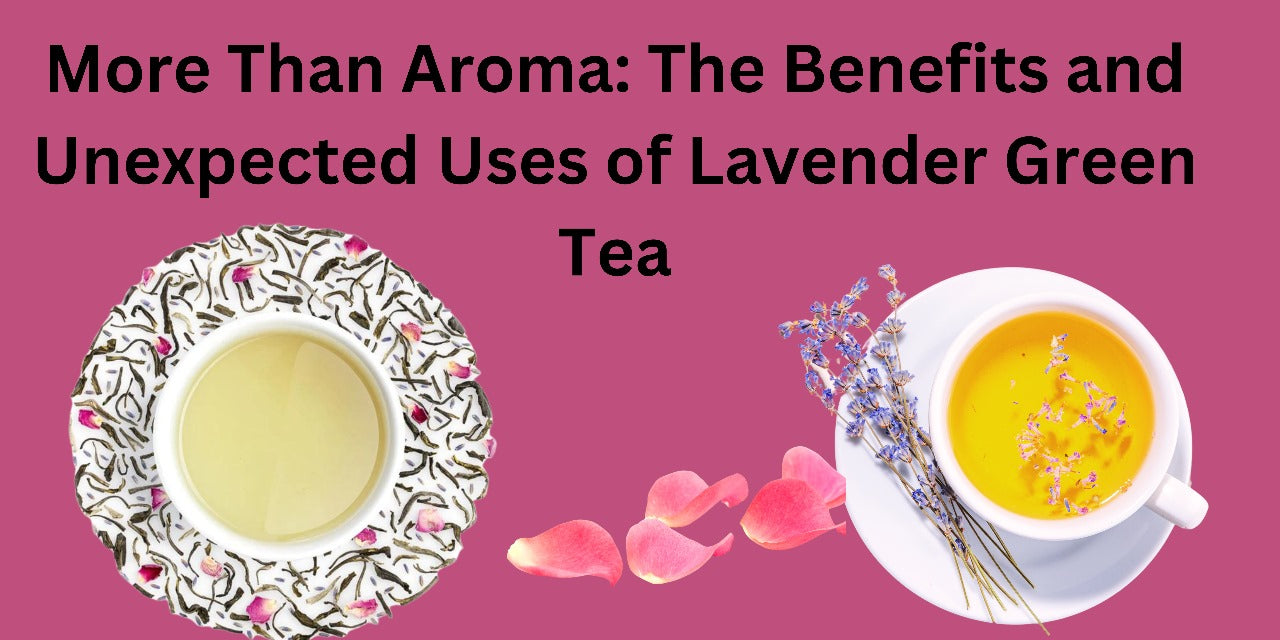Introduction
Sleep is essential for our overall well-being, yet many of us struggle to get a restful night's sleep. While various factors can contribute to sleep issues, such as stress and poor sleep hygiene, one often overlooked solution lies in the simple act of sipping a cup of tea.
Certain teas have natural properties that can promote relaxation and improve the quality of sleep. From soothing herbal blends to traditional teas, there are a range of options to choose from. In this blog, we will explore some of the best teas for better sleep, backed by science and expert recommendations. So grab a cozy blanket, brew yourself a cup of tea, and get ready for a peaceful night's sleep ahead.
Understanding the role of tea in promoting better sleep
Tea has been used for centuries as a natural remedy for various ailments, including sleep disorders. Certain teas contain properties that can help calm the mind and relax the body, making them ideal for those who struggle with falling asleep or staying asleep throughout the night.
One of the key components in sleep-inducing teas is the presence of certain herbs or botanicals. Chamomile, for instance, is well-known for its calming effects and is often used as a natural sleep aid. Its gentle and soothing properties can help reduce anxiety and promote relaxation, making it easier to unwind before bedtime.
Another popular sleep-inducing tea ingredient is lavender. The pleasant aroma of lavender has been shown to have a sedative effect, helping individuals experience deeper and more restful sleep. Many teas blend lavender with other herbs to create a soothing and comforting brew that eases the mind and prepares the body for a night of uninterrupted sleep.
Additionally, teas that contain valerian root have been found to be effective in improving sleep quality. Valerian root acts as a mild sedative and can help individuals fall asleep faster and enjoy a more restful sleep.
It's important to note that while these teas can be beneficial for promoting better sleep, they should not be relied upon as the sole solution for sleep disorders or chronic insomnia. If you're experiencing persistent sleep problems, it's advisable to seek professional help to address the underlying causes.
In the next section, we will explore some popular sleep-inducing tea blends and provide tips on incorporating them into your bedtime routine. Stay tuned!
Exploring different tea options for better sleep
Now that we understand the power of certain herbs and botanicals in promoting better sleep, let's delve into some popular tea options that can help improve your sleep quality.
- Chamomile tea: As mentioned earlier, chamomile is a well-known sleep aid. Its gentle and soothing properties make it a perfect choice for relaxing before bedtime. Brew a cup of chamomile tea about an hour before you plan to sleep, and savor its calming effects as you prepare to unwind.
- Lavender and chamomile blend: If you're looking for an extra boost in relaxation, try a tea blend that combines chamomile with soothing lavender. The combination of these two ingredients can help create a truly tranquil nighttime experience, allowing you to drift off into a deep slumber.
Remember, incorporating these teas into your bedtime routine is just one piece of the puzzle for achieving better sleep. It's crucial to establish a consistent sleep schedule, create a relaxing environment, and practice other healthy sleep habits to maximize the benefits. In the next section, we will discuss some helpful tips for incorporating sleep-inducing teas into your evening routine. Stay tuned!
Tips for preparing and consuming sleep-promoting teas
Now that you know about some of the best teas for better sleep, let's talk about the best practices for preparing and consuming them. By following these tips, you can optimize the benefits of sleep-promoting teas and create a calming bedtime routine.
Firstly, it's important to use high-quality tea leaves or tea bags. Avoid teas that contain artificial additives or caffeine. This ensures that you are getting the best possible ingredients for promoting sleep.
Next, pay attention to the brewing time and temperature. Different teas require different brewing techniques. Generally, herbal teas like chamomile and lavender are steeped for 5-7 minutes in hot water, while green and white teas require shorter brewing times. Be sure to check the instructions on the packaging to achieve the perfect cup.
To enhance the relaxation experience, consider creating a cozy atmosphere. Find a comfortable spot in your home, away from distractions, and create a relaxing ambiance with dimmed lights and soothing music. This will prepare your mind and body for a restful night's sleep.
When it comes to consuming sleep-promoting teas, timing is key. It's best to have a cup of tea about an hour before you plan to sleep. This allows the ingredients to work their magic and gives your body time to unwind.
Lastly, be mindful and savor the process of enjoying your tea. Take slow, deliberate sips and focus on the sensation and aroma. This mindful approach can further enhance the calming effects of the tea and promote a sense of relaxation.
By implementing these tips into your nightly routine, you can create a ritual that promotes better sleep and allows you to fully enjoy the benefits of sleep-promoting teas. In the next section, we will explore additional natural remedies that can complement your tea-drinking routine for improved sleep quality. Stay tuned!
Incorporating tea into your bedtime routine for optimal sleep
Incorporating tea into your bedtime routine can greatly contribute to achieving optimal sleep. As we discussed earlier, choosing high-quality tea leaves or bags is crucial. Look for organic options without artificial additives or caffeine. Additionally, consider the brewing time and temperature for each type of tea. Herbal teas like chamomile and lavender typically require longer steeping times, while green and white teas require shorter ones. Following the instructions on the packaging will ensure a perfect cup.
To enhance the relaxation experience, create a cozy atmosphere in your home. Find a quiet spot away from distractions, dim the lights, and play soothing music. This will prepare your mind and body for a restful night's sleep.
Timing is key when consuming sleep-promoting teas. Have a cup about an hour before bedtime, giving the ingredients enough time to work their magic and allowing your body to unwind.
Lastly, be mindful and savor the process of enjoying your tea. Take slow, deliberate sips, and focus on the sensation and aroma. This mindful approach can further enhance the calming effects of the tea and promote a sense of relaxation.
By incorporating these practices into your bedtime routine, you can create a ritual that promotes better sleep and fully enjoy the benefits of sleep-promoting teas. In the next section, we will explore additional natural remedies that can complement your tea-drinking routine for improved sleep quality. Stay tuned!
Conclusion: Enhancing your sleep with the power of tea
In conclusion, incorporating sleep-promoting teas into your bedtime routine is a natural and effective way to enhance the quality of your sleep. By practicing relaxation techniques, creating a soothing sleep environment, establishing a consistent sleep schedule, and limiting the intake of caffeine, nicotine, and alcohol, you can further enhance the effects of these teas and experience a more restful night's sleep.
In the next section, we will dive into specific exercises and relaxation techniques that can help you unwind before bedtime. These techniques will not only complement the benefits of sleep-promoting teas but also provide you with additional tools to relax your mind and body. Stay tuned for some valuable tips on incorporating these practices into your nightly routine for a truly rejuvenating sleep experience.




